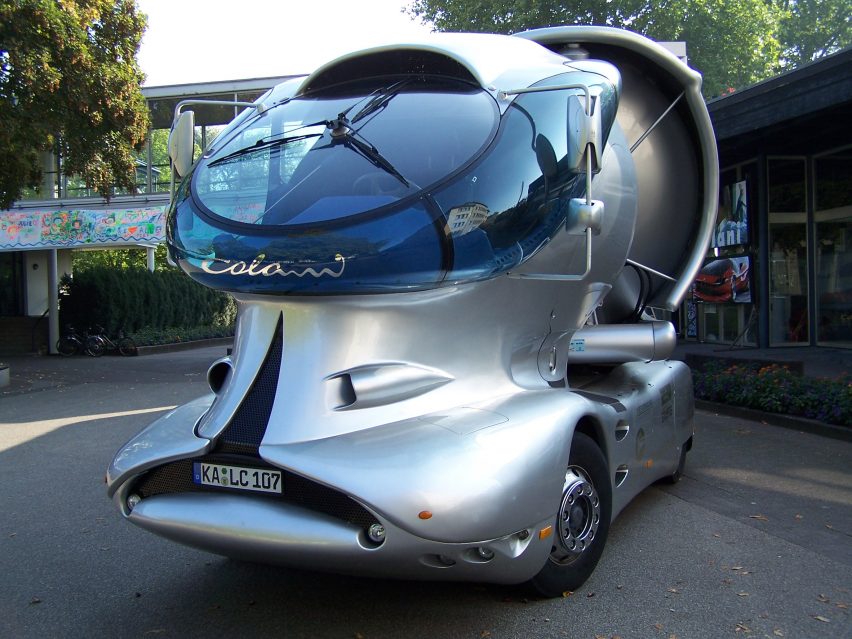
Biodynamic design pioneer Luigi Colani dies aged 91
German industrial designer Luigi Colani, renowned for his curvaceous product and transport designs, has died in his home country at the age of 91.
Colani was best known for the curved, organic forms of his designs, which he described as "biodynamic", including the Pegasus grand piano for manufacturer Schimmel and numerous vehicles.
The designer passed away yesterday, Monday 16 September, in Karlsruhe, southwest Germany, his partner Yazhen Zha confirmed.
Influenced the next generation
Colani's pioneering use of organic forms is widely acknowledged to have influenced subsequent generations of architects and designers, including the late architect Zaha Hadid.
"His influence is felt from me to Zaha to Ross Lovegrove and so many others," wrote designer Karim Rashid on Twitter. Rashid called him "my idol" and "my friend".
"He was such an extremist, he was a pop star, controversial among the critics, he was prolific, he was a pluralist touching everything from shoes to pens to spaceships to monorails to bathrobes," Rashid told Dezeen.
Describing the first time he came across Colani's work as a teenager, Rashid said: "I came across a designer who was broader than Raymond Loewy in sweep, more utopian that Buckminster Fuller, more organic than Noguchi, more technological than Eames, more aerodynamic than Pininfarina, and much more human and passionate than Dieter Rams."

Colani worked in many countries throughout his career, including the US, Russia and in China and Japan, where his Canon T90 camera would strongly influence the Japanese camera manufacturer's designs thereafter.
Known for curved designs
During his varied career he designed cars, trucks, furniture, glasses, televisions, cameras and clothes, which often featured his signature smooth edges and reflective finishes.
Colani said that he had more than 4,000 design ideas that he put down on paper, according to the New York Times.
Reacting to the news of Colani's death, experimental researcher and designer Gregorio Spini posted a picture on Facebook of a futuristic-looking urn that he wrote will hold Colani's ashes.
The urn takes the form of a white egg on its side, with a diagonal cut through its middle. A gold latticed structure is fitted inside the white exterior.
Began designing cars and furniture
Colani was born as Lutz Colani in Berlin in 1928 and lived the latter part of his life in Shanghai, China.
He began his career designing cars in the 1950s, during which time he worked for Fiat, Alfa Romeo and BMW. It was during this time that he dropped his birth name Lutz, in favour of the moniker Luigi.
During the 1960s he moved into furniture design and by the next decade he began working in other areas of industrial design, creating items ranging from pens to entire kitchens.
Designed futuristic transport
By the late 1970s his streamlined, futuristic trucks, ships and other vehicles were regularly seen at exhibitions around the world.
He moved to Tokyo in the 1980s, where he exhibited a 60-metre shell and was well-respected for his industrial designs. In the 1990s he moved into designing entire structures, as well as being an early designer for desktop computing accessories, such as a mouse for Sicos completed in 1992.
His 2003 design for the Hamburg police force uniforms was adopted across all of Germany, while 140 sculptures he made of athletes were exhibited at the Beijing Olympic Games in 2008.
A retrospective exhibition of Colani's work, titled Translating Nature, took place at London's Design Museum in 2007, and included many of his cars, bikes, trains and aircraft designs.